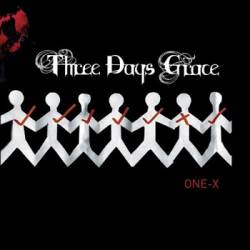“Animal I Have Become” Relating to Lady Macbeth’s Character Change
In Shakespeare’s Macbeth, Lady Macbeth experiences a complete change in lifestyle through her and Macbeth’s murder of King Duncan. Lady Macbeth receives all she’s ever wanted: royalty, fame, and wealth. However, this comes at a cost to her; killing the king leaves her in a state of guilt that permanently affects her mental health. She’s become something awful—an animal. Three Days Grace’s song “Animal I have become” perfectly communicates Lady Macbeth’s character development throughout Macbeth. This song’s music, lyrics, and tone tie in to Lady Macbeth’s personal struggles with her guilt during the play. The rock music, drastic lyrics and dark tone tie in with Lady Macbeth’s personality.
Many lyrics in Three Days Grace’s song “Animal I Have Become” can relate to Lady Macbeth’s character. The lyric, “Somebody get me through this nightmare/ I can't control myself”(Animal I Have Become) relates to Lady Macbeth after she assists the murder of Duncan and is left with the heavy weight of guilt. This affects her sleeping and she begins to sleepwalk around her home. She walks through her home trying to wash her hands of ‘blood,’ which raises alarms with her maid and the doctor. This is the lowest point that Lady Macbeth hits. Even the doctor says to the gentlewoman, “Unnatural deeds/Do breed unnatural troubles./ Infected minds/To their deaf pillows will discharge their secrets…My mind she has mated, and amazed my sight” (V.I.). Another lyric, “Somebody help me tame this animal” (Animal I Have Become) relates to how Lady Macbeth feels about Macbeth and her new found royalty after the murder. Lady Macbeth creates this monster, in the beginning she supports him, she even tells him to deceive others when she says, “Your hand, your tongue. Look like the innocent flower/But be the serpent under’t”(I.V). Then, after the murder of Duncan, Macbeth proceeds to ditch Lady Macbeth and continue his conquest on his own. At one point he even tells her to leave him alone. Lady Macbeth creates this animal, and now it’s too late to tame him. In the play she never strongly went out of her way to stop Macbeth, but it’s easy to perceive her unhappiness with the crown after she, “by self and violent hands/Took off her life”(V.VIII.). The shame she holds after Duncan’s murder lead her to kill herself, no longer being able to cope the guilt.
The rock music and rhythm of “Animal I Have Become” go excellently with Lady Macbeth’s character. Rock music is often thought of as more aggressive than others genres, and Lady Macbeth comes across as much more aggressive than the other characters in the play. Particularly in the beginning, Lady Macbeth comes in as a stubborn and hard-headed character, being the decision maker in her and Macbeth’s relationship. This upfront personality is similar to the hard beat in “Animal I Have Become.” The music and rhythm in this song starts out with a simpler beat, then proceeds to add more aspects such as an electric guitar and drums. This is similar to Lady Macbeth’s character development in the play; in the beginning Lady Macbeth is a very static character, seeming one dimensional. She’s seen as the harsher character between her and Macbeth, and much more capable of evil. Then, as the play continues more qualities are added to her, such as guilt and consciousness. She starts out as a basic character, like the beat in the beginning of “Animal I Have Become,” then as the play continues more character aspects are added, just as more instrumentals are added to the song. The varying ups and downs of music and volume in “Animal I Have Become” compare to Lady Macbeth’s changes of heart throughout the play. In the beginning Lady Macbeth comes out as a complete badass, who is the foundation of making Macbeth’s decisions. However, as the play goes on she begins to suffer from regret and guilt, and cannot properly cope with what she’s done. These changes in character are similar to the song; the voluminous sections when Lady Macbeth is sure of herself, and the softer parts where she is unsure of her actions.
The multitude of tones in “Animal I Have Become” are similar to the layers and tones of Lady Macbeth’s character. The urgent tone of Three Days Grace’s song ties into the urgency Lacy Macbeth has when wanting to kill Duncan. You can see her want for royalty when she tells Macbeth that she will take care of the murder, she says, “Leave all the rest to me”(I.V.). She’s desperate to have more money and glory and now Macbeth has given her all of this. Once the thought of being queen entered her mind, it’s all she can think about. Throughout “Animal I Have Become” the lyrics combined with the music give off a tragic tone of someone who has lost control of themself. The tone of Macbeth and Lady Macbeth's character is quite grim as well. Macbeth is a tragedy; including betrayals, death, and characters flaws that lead to their own demise. Lady Macbeth in particular has a tragic storyline as she strives to become queen through unruly acts, and then cannot deal with her guilt and commits suicide. This tragic end of her character is similar to the tragic meaning of “Animal I Have Become.”
Lady Macbeth is a dark, complex character who experiences a multitude of changes throughout the play. Three Days Grace’s song “Animal I Have Become” portrays Lady Macbeth’s character excellently because this song describes someone who has changed into something terrible. This song’s music, lyrics, and tone can be used to describe Lady Macbeth’s characteristics and character development in Macbeth. “Animal I Have Become” communicates the struggle of becoming something you don’t want to be, which happens to Lady Macbeth in Macbeth. Lady Macbeth has to learn to deal with the guilt that occurred when she assisted in murdering for power. Her character changes from stubborn and desperate for power, to weak and needing support. This is why “Animal I Have Become” perfectly aligns with Lady Macbeth’s character; her overwhelming guilt leads her to change into a something else, and this change is only harmful to her.


No comments:
Post a Comment